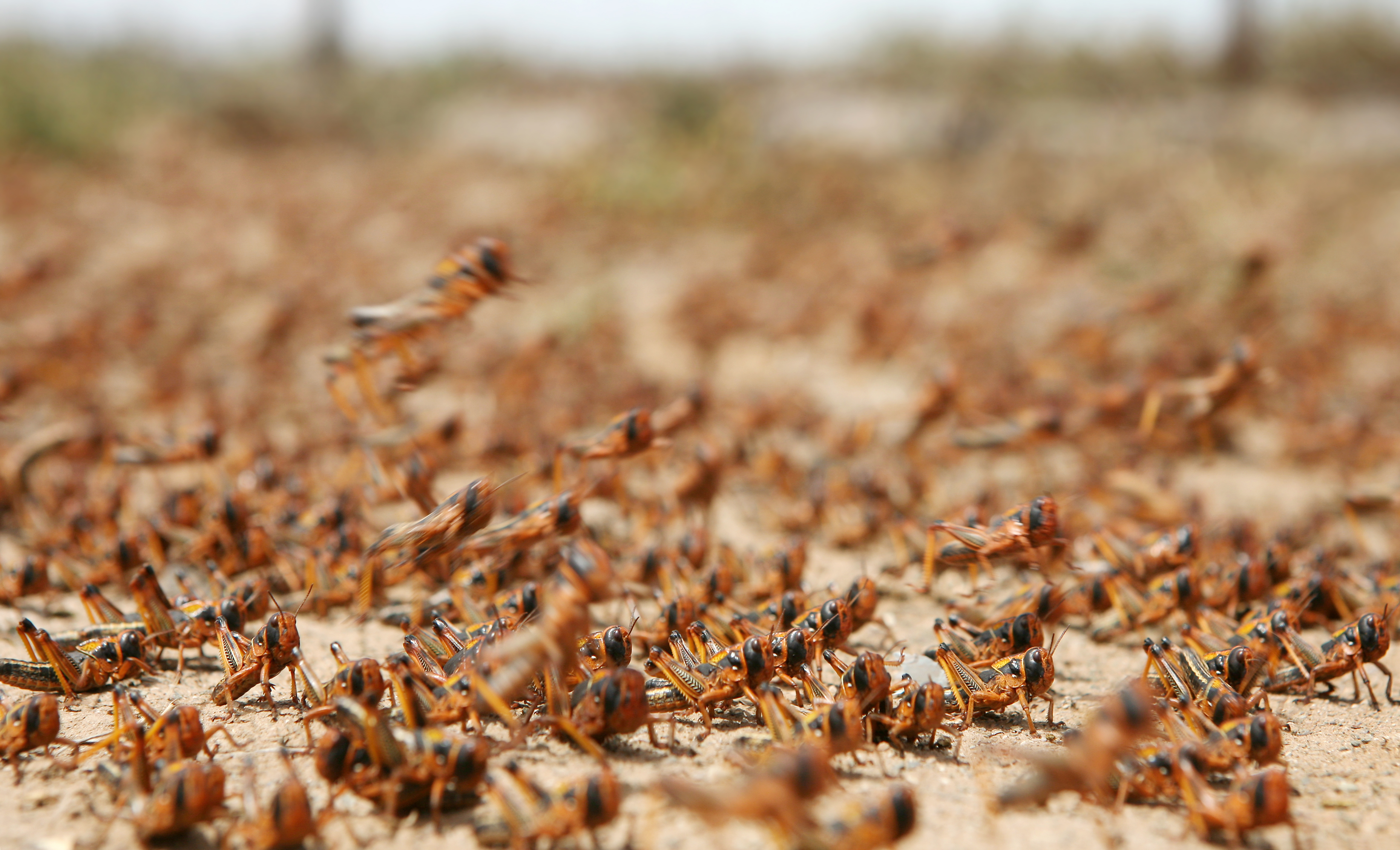Locusts ravage East Africa’s crops in worst invasion in 25 years
Hundreds of thousands of tons of food destroyed

A free daily email with the biggest news stories of the day – and the best features from TheWeek.com
You are now subscribed
Your newsletter sign-up was successful
Vast swarms of locusts are devouring crops across large areas of East Africa and parts of the Middle East, leaving millions of people at risk of famine.
The insects have already destroyed 175,000 acres (70,000 hectares) of farmland in Somalia, Kenya and Ethiopia, according to the United Nations’ Food and Agricultural Organisation (FAO), with further damage reported in Oman, Yemen and Eritrea.
In a single day, an average swarm of locust can destroy crops sufficient to feed 2,500 people for a year.
The Week
Escape your echo chamber. Get the facts behind the news, plus analysis from multiple perspectives.

Sign up for The Week's Free Newsletters
From our morning news briefing to a weekly Good News Newsletter, get the best of The Week delivered directly to your inbox.
From our morning news briefing to a weekly Good News Newsletter, get the best of The Week delivered directly to your inbox.
Even before the infestation began, the UN had warned that as many as two million people in Somalia were at risk of starvation in the wake of the country’s worst drought since 2011.
Humanitarian information portal ReliefWeb says that what was already expected to be a large-scale invasion was “further exacerbated” by heavy rains and floods that fell in early December, providing ideal breeding conditions for the swarming grasshoppers.
The FAO says spraying pesticides using aircraft is the “ideal control measure”, but wars, infrastructural deficiencies and government inaction in countries across the region have left desperate communities searching for other solutions.
In Somalia, members of militant terrorist group Al-Shabaab are shooting at the insects, The Telegraph reports.
A free daily email with the biggest news stories of the day – and the best features from TheWeek.com
Footage emerging from Kenya also shows police officers and soldiers firing bullets wildly into the swarms, as well as attempting to disperse them with tear gas.
Civilians, meanwhile, have banged pots and honked car horns in an effort to scare off the winged invaders.
A number of Kenyan lawmakers have criticised their country’s government for not sufficiently preparing for the invasion, which experts had predicted months ahead.
“There was a warning,” MP Adan Keynan told Nairobi-based newspaper The Standard last week.
“Our neighbour Ethiopia heeded it and intervened with the help of the international community. Here, nothing was done and nothing is being done now and if it continues, we shall not be having any vegetation in a few days to come.”
In some parts of Somalia and nearby Yemen, locals have begun eating the locusts as a replacement for the lack of crops, reports Al Jazeera, which says the insects are a “valuable source of nutrition”.
All the same, “aid agencies now say that the locusts mean that many Somali farmers will face starvation unless relief reaches them over the next few months”, adds The Telegraph.